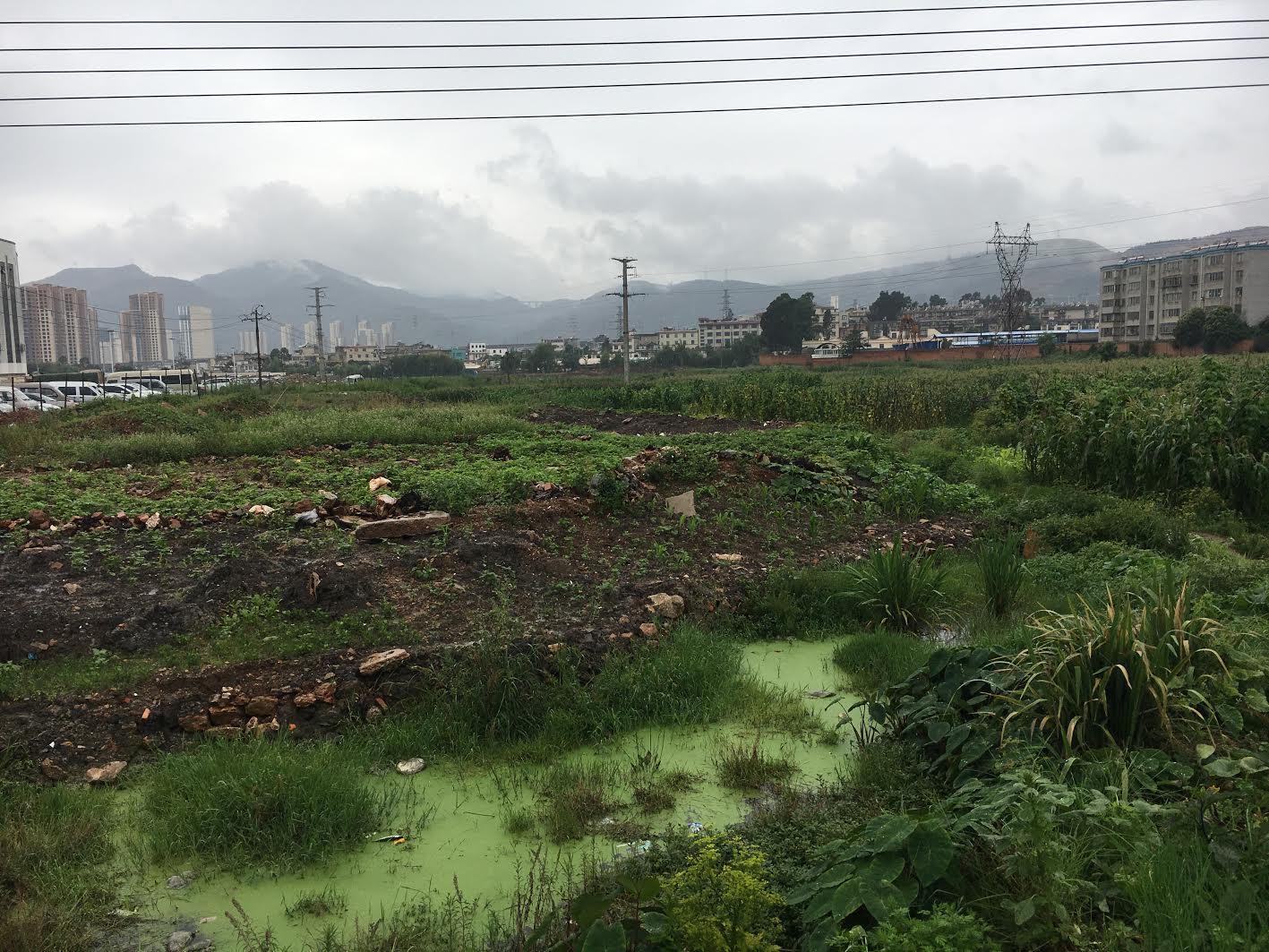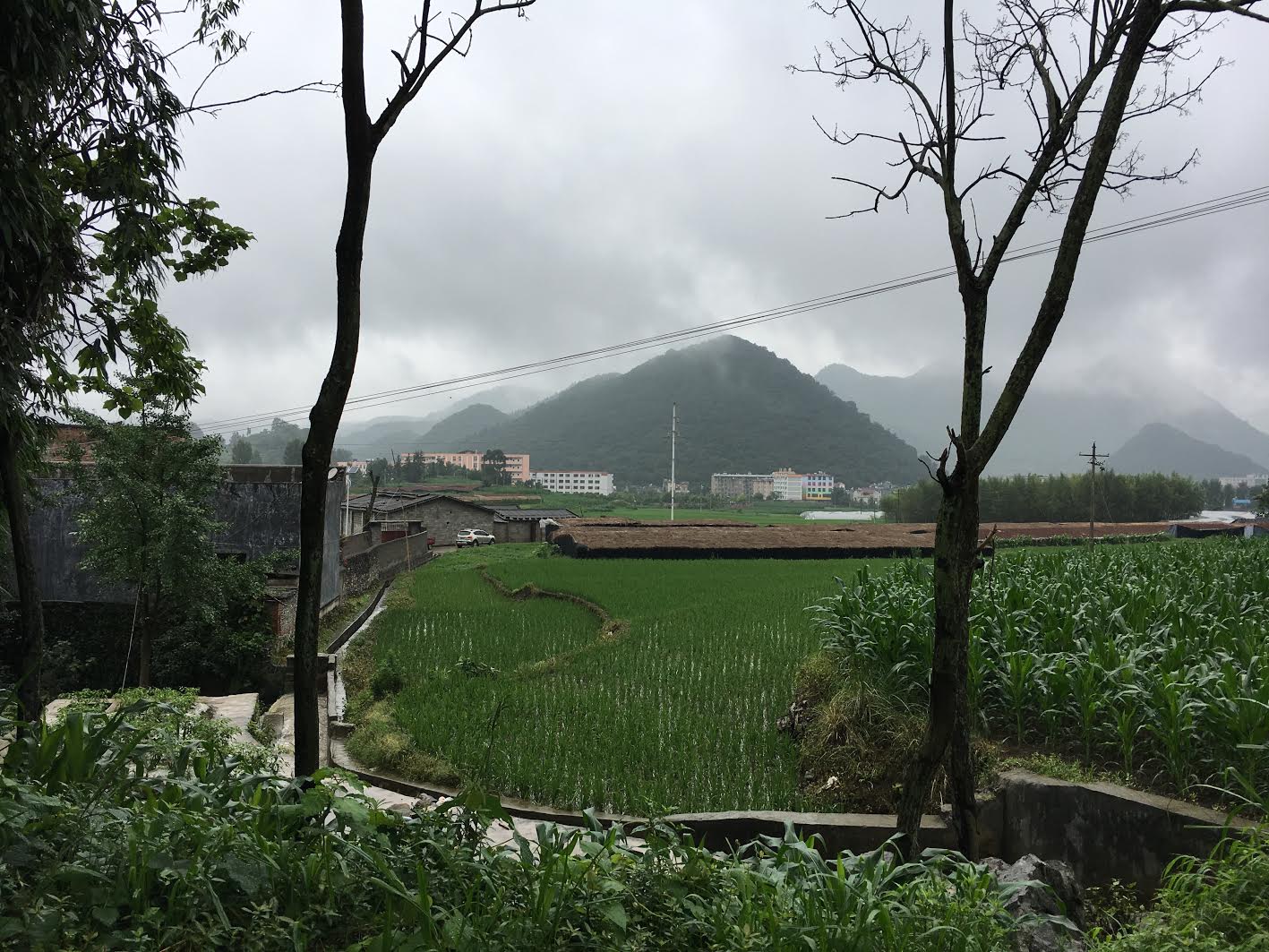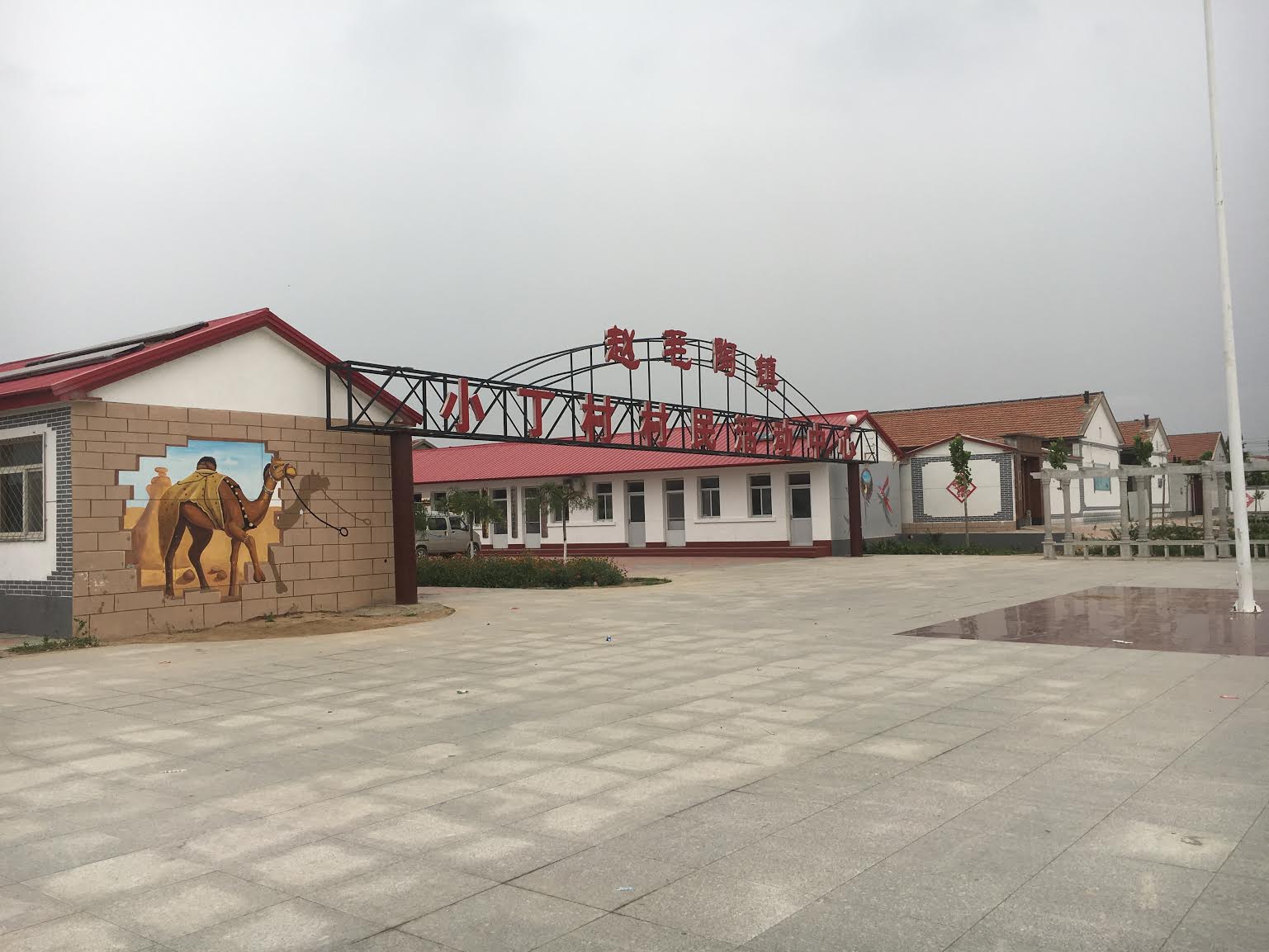Xiaopuji Village (小普吉村)
Kunming is the capital and largest city of Yunnan Province in southwest China. Located in a suburb of Kunming, Xiaopuji village is a typical “village-in-city”—surrounded by urban constructions due to the city’s expansion. All farmland of Xiaopuji was either acquired by the government for industrial development or was consolidated by the village administration and rented to private factories. Villagers are no longer farmers—all engage in various types of small business or found employment in Kunming.

Xiaopuji has about 450 households and 2,000 villagers; however, at least 20,000 migrant workers from poorer areas in Yunnan and Guizhou Province also live in the village and work in the small factories built on village land. A major resource of income for the villagers comes from renting their houses to these migrant workers. Here villagers use all possible space to build houses, most of which are rented to migrant workers (June 2017).
Huangnihe Village (黄泥河村)
Huangnihe Village is located in Fuyuan, a mountainous County in the east of Yunnan Province. At least half of its farmland was acquired by the government for industrial projects, such as a railway, a power plant, and highways. Agricultural incomes from the remaining farmland are not sufficient to support the villagers. Most villagers either engage in various types of small business to supplement income from farming or work as migrant workers in cities.
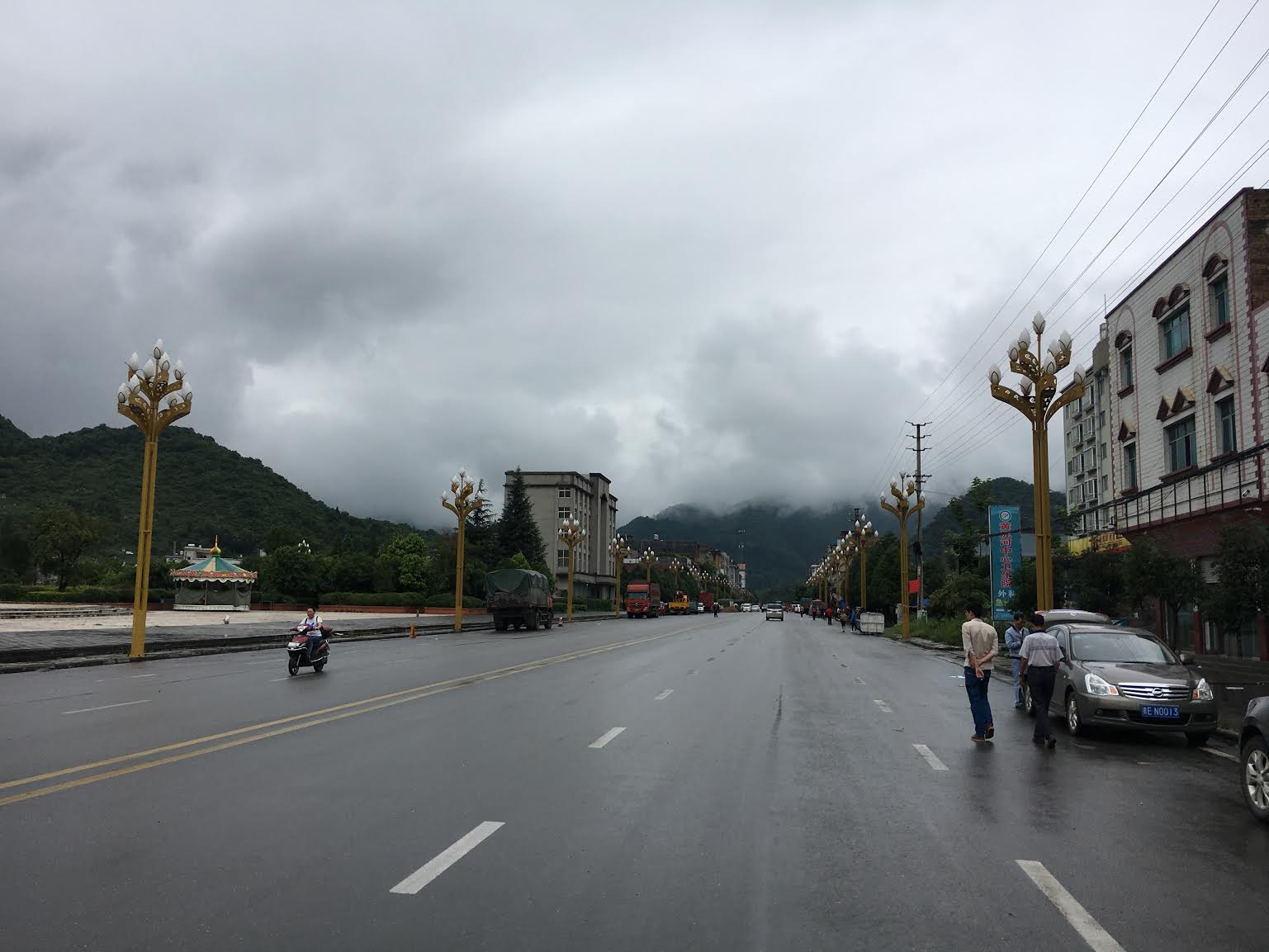
A major inter-province highway runs through Huangnihe Village. Farmland on both sides of the highway was turned into stores, apartments, and small enterprises, gradually changing the life of local residents. A village leader told me about their ambitious plan to build a large apartment complex for sale to local villagers or any other interested outsiders (July 2017)
Xiaoding Village (小丁村)
Located in Hebei Province in the North China Plain, Xiaoding Village is only 30-40 miles from the Bohai Sea. This village has a long history of struggling with low agricultural yields caused by sodic soils. Starting in the 1980s, most villagers migrated to cities for urban jobs. Mainly senior people engage in agricultural production. For the present, Xiaoding Village has retained most of its farmland, but is completely surrounded by industrial parks.
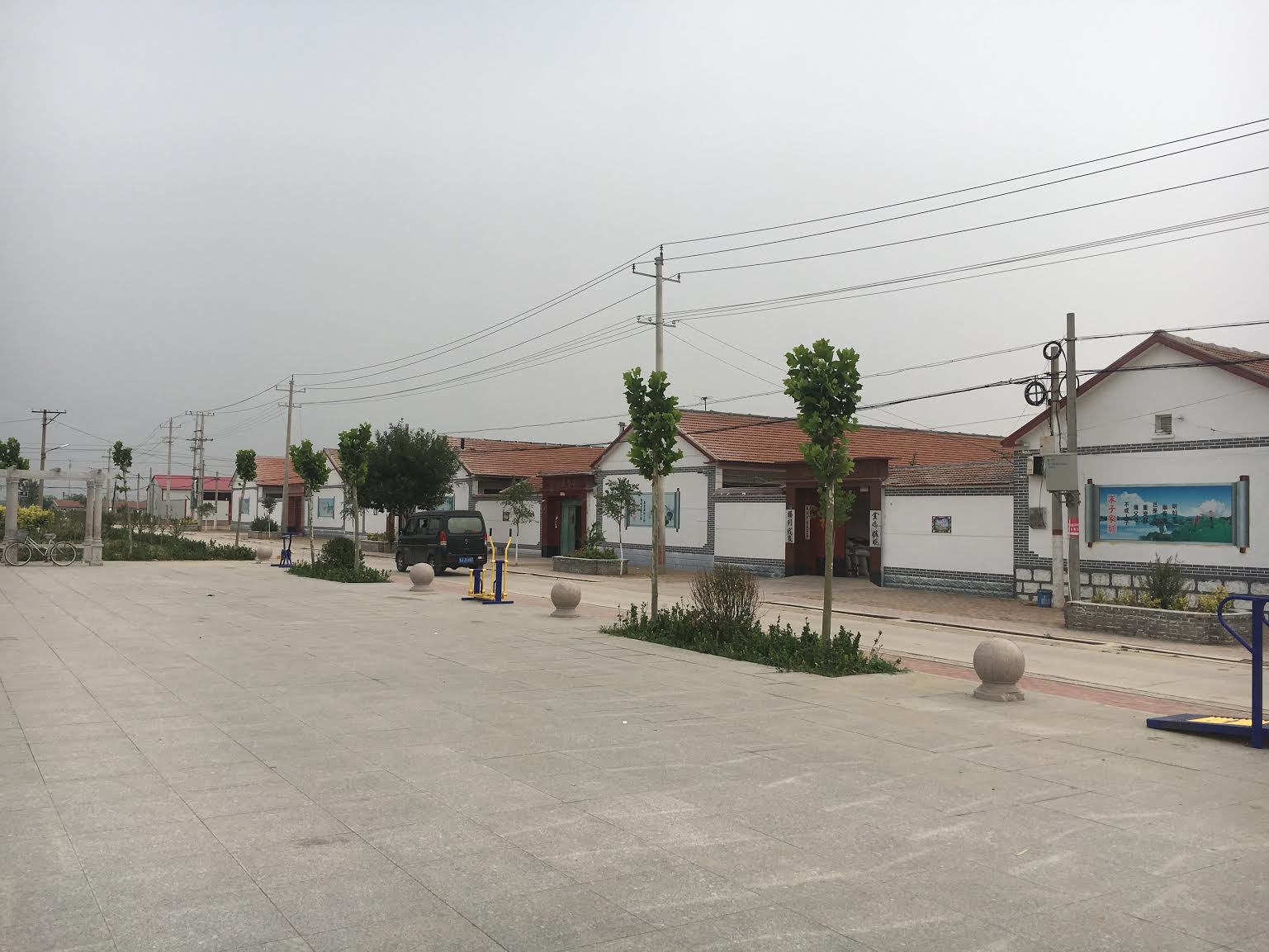
Most villagers in Xiaoding work in Beijing, Tianjing, or coastal cities, and farming is left to senior people in the village. However, income from off-farm employment has supported a prosperous life here. For many villagers, the village has become a place where they return for holidays and family reunions (July 2017).
Negotiating Rural Land Ownership in Southwest China

This is a study from the ground up. Its focus is not just on state policies, or property laws and systems, or “socialism” and “capitalist reforms,” but rather on longstanding community (the natural village) and familial organizations and traditions that also shaped change, in ways that will surprise many readers. — Philip C. C. Huang, University of California, Los Angeles
Yi Wu’s pioneering research on contested property relations draws on more than a decade of innovative fieldwork in villages and courts in rural Southwest China. Her framing concept of “bounded collectivism,” emerging from the study of land disputes, draws attention to powerful continuities that never ceased to define rural life through the storm of land revolution, collectivization and Cultural Revolution to the contemporary era of market-driven family farming. Where many studies have focused on the role of the Party in reshaping rural society, Wu highlights the continued salience of cultural norms rooted in rural settlements and families in shaping significant social outcomes. — Mark Selden, Cornell University
No issue in China’s countryside is more vital or more controversial than land rights. This readable and illuminating book based on extensive grassroots research reveals the economic predicaments faced by rural families, why conflicts erupt between villages, and the very different interests of villagers, local governments, and the central state. Few books about rural China provide as good a grasp of the situation today as this admirable study. — Jonathan Unger, The Australian National University

In April 2018, the University of Hawaii Press nominated my book for the 2019 International Convention of Asian Scholars (ICAS) book award. Please view the active link.

